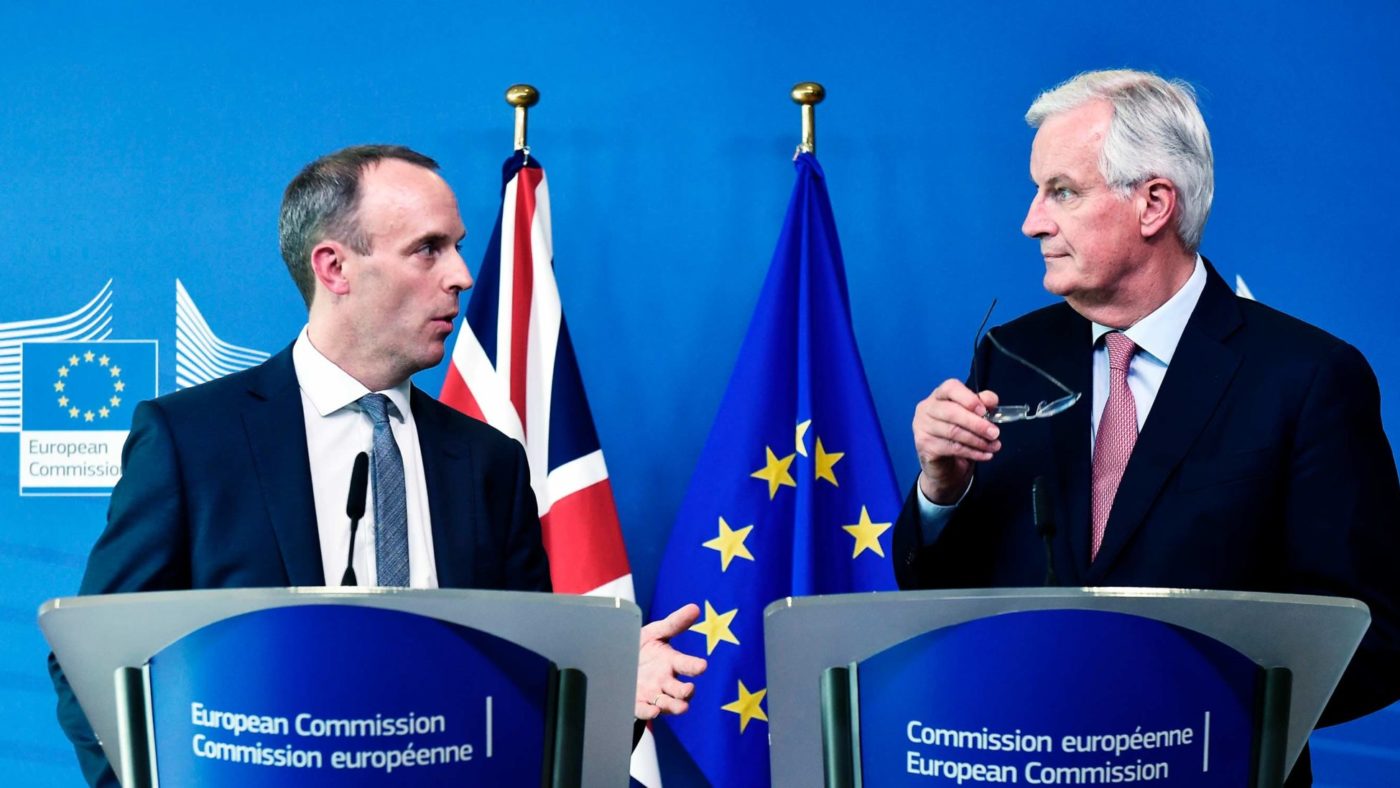The likelihood of leaving the EU with no deal is increasing — in fact it’s now 60 per cent according to International Trade Secretary Liam Fox.
There are two key crunch points ahead: the EU’s draft Article 50 treaty and their reaction to the Chequers plan. Both will cause a political storm.
The EU are sure to demand their £40 billion divorce bill without offering a commitment to a free trade deal, and they have already made clear Theresa May’s Chequers plan is unacceptable. Equally unacceptable is their own suggestion of a backstop for the Irish border, especially for the DUP.
Nor has either side has shown the basic competence needed to sort out these problems before March 2019. And there is no goodwill on the EU side of the negotiating table. But no deal won’t bring the disasters described by over-hysterical commentators. Nor will we “crash out” or go “over a cliff”.
There are three main reasons why no deal is increasingly likely. First, May will find it harder than usual to give way on the exit fee after Dominic Raab’s statement to Parliament that there needs to be “some conditionality” between divorce payments and the trade deal. The EU insists that the two are completely separate. We will have a legally enforceable treaty for the exit fee and a “political declaration” for the trade deal. As a lawyer, Mr Raab is well aware of the difference.
Money is the UK’s strongest card, because the EU needs our billions to prevent, or at least delay, a damaging budgetary fight between member states. Mrs May is between a rock and a hard place — if she makes Mr Raab back down, she risks losing a second Brexit Secretary. If she doesn’t, the EU will be outraged and may block a free trade deal in retaliation.
The second cause for concern is the Irish border issue, which shows no imminent sign of resolution.
Then there is the fact that the Chequers deal is completely incompatible with single market rules — it is cherry-picking on a grand scale. If the EU compromise for us, others will surely demand the same treatment, and the system will start to unravel.
Yet May continues to insist that her proposals are the only option, despite vocal opposition from her own ranks and her admission that there will be further compromises. And for all her red lines, the EU still thinks it can get our full submission – single market and customs union membership under ECJ jurisdiction. That too looks like wishful thinking from Brussels, given May has no chance of getting such a complete surrender through Cabinet, let along the Commons.
But if a no deal scenario is getting more likely, how worried should we be?
Hysterical scaremongering about no deal assumes that talks about everything break down — a bitter dispute, with the EU refusing to agree anything about trade or governmental co-operation. Administrative arrangements won’t work because they refer to EU institutions and we won’t be members. Planes will be grounded, medicines won’t get licensed, nuclear waste piles up wherever it happens to be when we leave.
Michel Barnier has begun to encourage this apocalyptic view in an attempt to scare Britain into the total capitulation he sees almost within reach. May too has worked hard on discrediting no deal to leave her version of Brexit as the only viable option.
But talk of a cataclysmic breakdown is ridiculous. For a start, it would be counter-productive to tie everything into a single all-encompassing agreement.
While Article 50 and the trade relationship need high-level negotiation, administrative arrangements like licensing and landing rights do not. These don’t depend on EU membership, they just happen to have been set up through the EU and non-EU countries would be badly affected if they stopped. Even the EU would not take vindictiveness to such an absurd level, especially as it would be left to member states to clear up the ensuing chaos.
The only sensible approach is to take these issues separately from the main talks. Updating them is a detailed administrative task, not a matter for confrontational negotiation. Civil servants on both sides can handle it, given political direction. Over 300 separate working groups of officials are already working on this. Civil servants hate chaos, and nobody’s interests or prestige is riding on obstruction in these areas. Mr Raab’s DExEU now has clear responsibility for making these preparations work, deal or no deal.
Shorn of this scaremongering, no deal means no Article 50 treaty and no FTA. We trade under WTO rules and the European Court has no jurisdiction over the UK. It also means no £40bn exit fee. Not a bad starting point.


